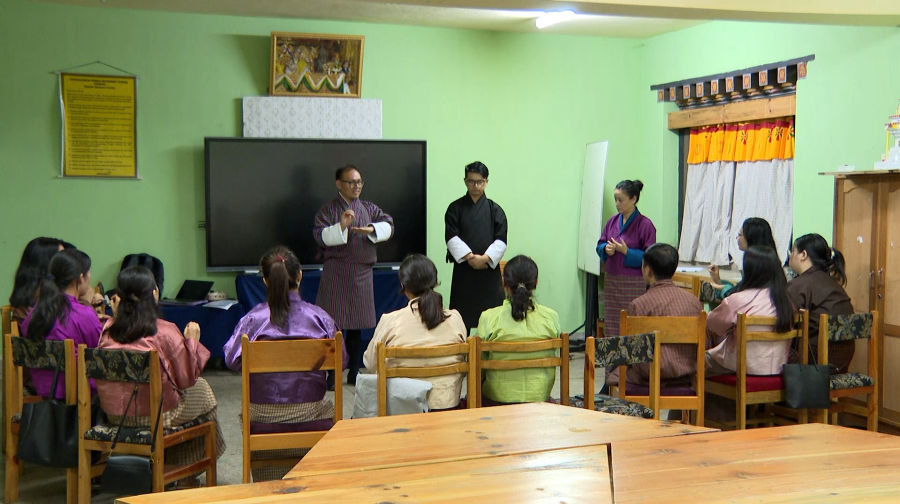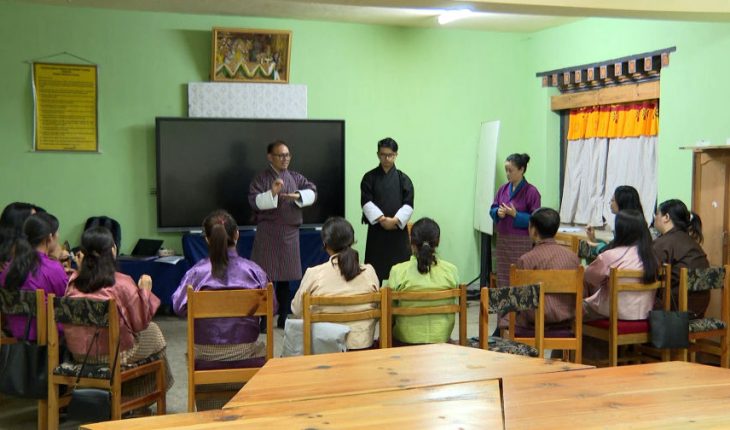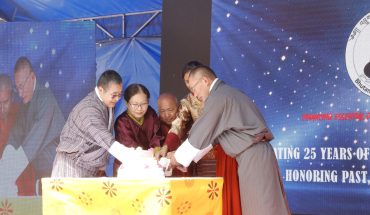
Programme will equip aspiring interpreters to break communication barriers, improve accessibility, and empower deaf people across schools, hospitals, and public events
TIL BDR GHALLEY | Thimphu
A new initiative in Thimphu is aiming to reduce communication barriers for Bhutan’s deaf community by training the country’s next generation of certified sign language interpreters.
To bridge the gap, the Disabled People’s Organisation of Bhutan (DPOB), in collaboration with the Wangsel Institute for the Deaf, is conducting a foundational training course for 11 participants.
Once certified, these interpreters will provide vital support in hospitals, schools, courts, and public events, where the absence of trained professionals has often left deaf people struggling to communicate or access services.
Nearly seven percent of Bhutan’s population lives with disabilities, of which about two percent experience hearing challenges.
The lack of certified interpreters has historically limited access to essential services and hindered the deaf community’s ability to participate fully in social and civic life.
The training sessions are being held at Changangkha Middle Secondary School. Inside the classroom, participants from diverse backgrounds — including college graduates, journalists, nurses, and writers — practice communicating without words.
An instructor from the Wangsel Institute guides the trainees through hand gestures, finger movements, and facial expressions, demonstrating how each motion conveys meaning.
The participants closely mirror her, learning the names of places and reinforcing the basics they have already covered, including the alphabet and everyday expressions.
The course convenes twice each week, with participants gathering every Monday and Thursday to engage in intensive lessons, practice their skills, and build proficiency in sign language under the guidance of experienced instructors.
“We want people to undergo this course to produce interpreters. It’s not that we don’t already have interpreters; we do, but most of them are teachers who have other mandates,” said Sushila Gurung, trainer and teacher at the Wangsel Institute for the Deaf.
She said through this course, they expect learners to step into the field so that whenever deaf people need support at any event, they can interpret for them and for the wider deaf community.
Sushila emphasized the broader goals of the programme to bridge the communication gaps between the deaf and hearing, ensuring access to information, and fostering inclusion.
“One of the main challenges for learners is that they are learning the language for the first time and must work towards fluency. We are using strategies like letting them communicate with the deaf even during informal moments, such as tea breaks, and creating a language-rich environment by signing throughout the day,” she said.
For the participants, the course represents an opportunity to make a tangible difference.
“I was inspired by the realization that communication is something many of us take for granted, yet for the deaf community it can be a daily challenge. I wanted to bridge that gap and ensure that deaf people feel included, respected, and understood. Learning sign language is my way of showing solidarity and creating a space where everyone can connect without barriers,” said Yeshi Wangmo, a trainee.
She said that even small efforts can have meaningful outcomes. She said learning sign language may seem like a small step, but it sends a powerful message — that the deaf community matters, that they are seen, and that their voices are important.
“In Bhutan, small acts of inclusivity can grow into a culture of belonging. If each of us takes even one step toward inclusion, we can create a society where no one is left behind,” she added.
The programme reflects Bhutan’s ongoing efforts to improve accessibility and inclusivity for people with disabilities.
Certified interpreters are expected to serve across sectors, enabling deaf individuals to access healthcare, education, legal services, and public events without barriers.
“Your commitment to practicing just ‘one sign a day’ can help transform any environment into a more inclusive space for the deaf community, and ensuring access to information and essential services will empower them to participate fully in society,” Sushila said.
The course also emphasizes hands-on practice, encouraging trainees to integrate sign language into everyday interactions.
As more certified interpreters become available, the deaf community is expected to experience improved communication, better access to information, and greater participation in social and civic life.





